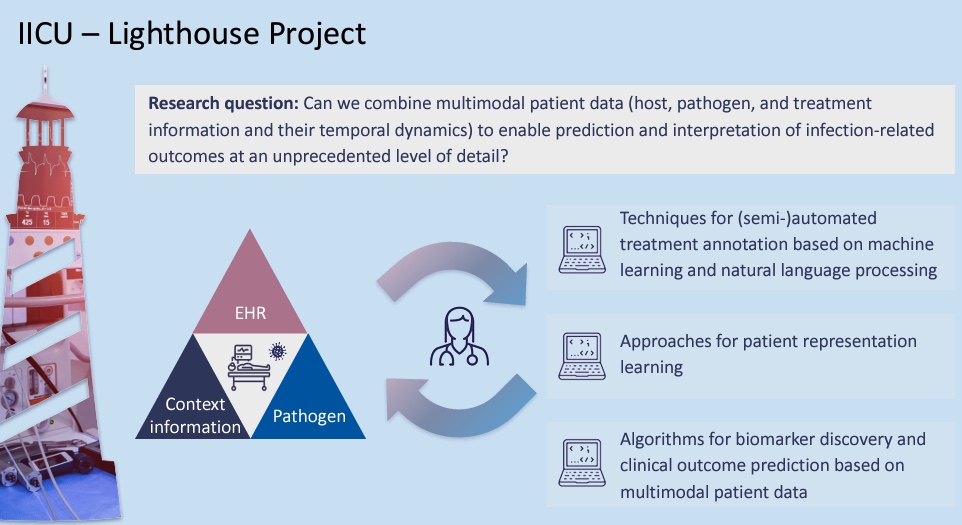Adult Sepsis
Detection and Progression
Sepsis is a serious medical condition that occurs when the body's response to an infection becomes overwhelming, leading to a high risk of death, especially in intensive care units (ICUs) around the world. Detecting sepsis early and accurately is crucial for doctors, but it's challenging because the symptoms and how the condition progresses can vary greatly. However, recent advances in machine learning (ML) are starting to tackle these challenges. These ML models use a variety of data from ICU settings, including digital information, biological data, and clinical notes, to better predict when sepsis might occur. This progress in using predictive analytics could change the way we provide medical care, making it easier to predict and treat sepsis early on, which could potentially save lives.
Within the personalized, data-driven prediction and assessment of infection-related outcomes in Swiss ICUs (IICU) project, we will have access to a rich and large-scale multi-hospital dataset from the five university hospitals in Switzerland. With these data, we conduct the following projects.
Using Natural Language Processing for Early Prediction of Sepsis

The integration of Natural Language Processing (NLP) within ICU environments holds transformative potential for the early detection of sepsis. By analyzing unstructured clinical narratives in patient records, such as physician notes and laboratory results, NLP techniques can extract subtle indicators of sepsis that may elude traditional monitoring systems. These advanced algorithms can process vast amounts of textual data in real-time, identifying linguistic patterns and clinical terminologies that correspond with the onset of sepsis. This capability enables healthcare providers to initiate timely interventions, thus improving patient outcomes. The objective of this project is to use advanced natural language processing techniques to enhance sepsis prediction in intensive care units.
Early Prediction of Sepsis with Multi-Site Data in Switzerland
Harnessing the comprehensive IICU dataset from the five university hospitals across Switzerland, this project aims to develop advanced predictive models by using multimodal data, including physiological and laboratory data, and clinical notes. The project will also include the external validation of these models to ensure their efficacy and accuracy in diverse clinical settings. Furthermore, we will refine methodologies to enhance the robustness of the models, thereby facilitating their adaptability and reliability across multiple sites.
The IICU project is the Personalized, Data-driven Prediction and Assessment of Infection Related Outcomes in Swiss ICUs (IICU).
